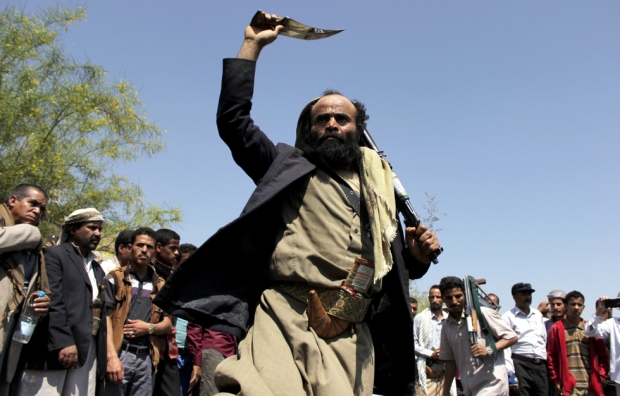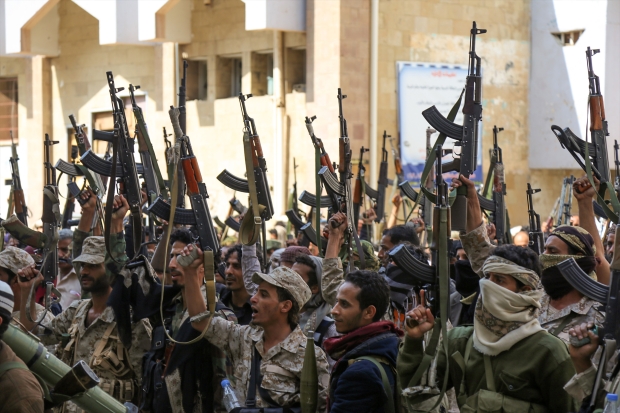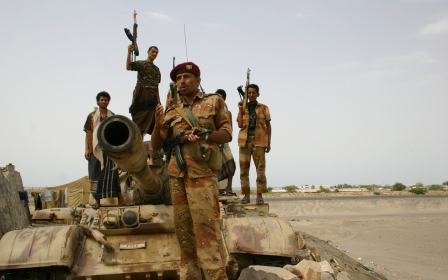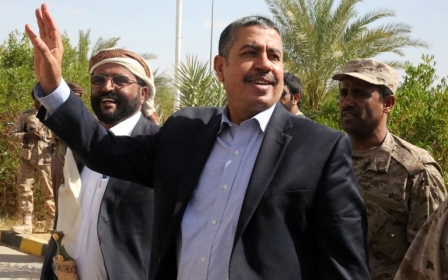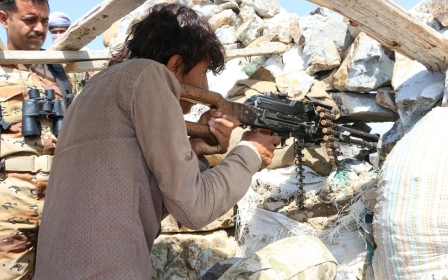Yemen's Taiz sinks into the abyss as Salafis fight war of revenge
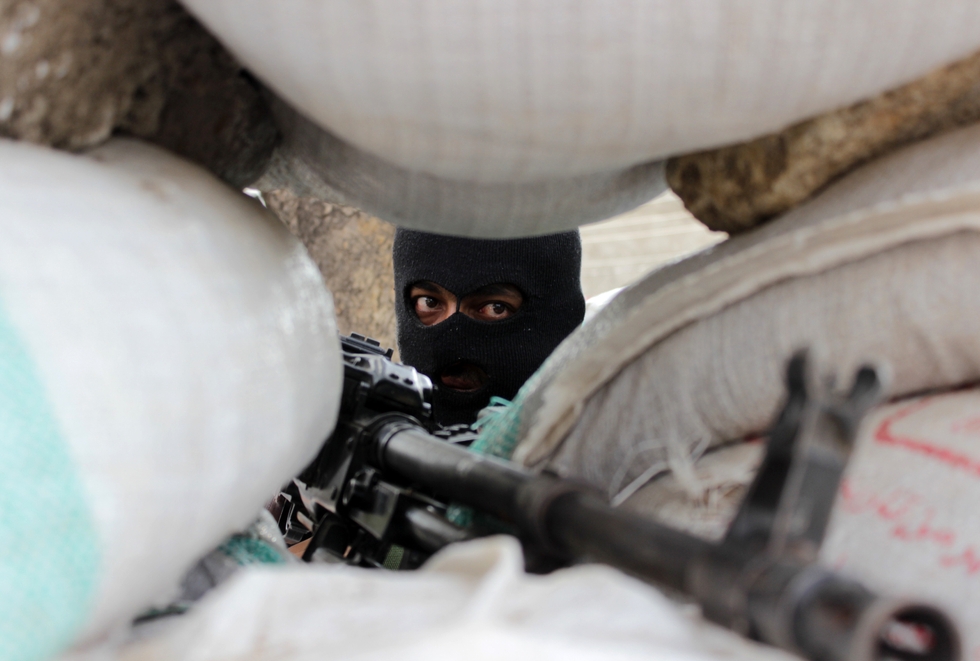
TAIZ, Yemen - Abu Bakr stares intently from behind the wheel of a truck packed with heavily armed Salafi fighters as it speeds through an enemy-controlled area of Taiz, cratered and pock-marked by months of combat.
This ancient southern city has become a crucible in Yemen's war, with the Houthi movement besieging its half-a-million people as they fight forces loyal to the president, Abd Rabbuh Mansour Hadi, in a brutal campaign that has left hundreds dead on both sides, and countless civilian casualties. Bombs have wrecked large areas, and the scars of street-to-street fighting are everywhere to be seen.
Abu Bakr's men, heavily bearded and dressed in the traditional Maawaz, have taken part in some of the fiercest fighting, repelling Houthi attacks on their stronghold in an area known as "Republic", and launching assaults on Houthi-controlled areas including "Cairo Castle" and "Political Security".
But the Salafis are not fighting just to decide who will govern Yemen - Houthi or Hadi - nor which regional power will hold the strings. Their war has a much simpler purpose - revenge.
Abu Bakr, a man in his 30s from the Taiz area, wants payback for those killed when the Houthis drove the Salafi population from Dammaj in the northern province of Saada last year, after a siege stretching back to 2013.
New MEE newsletter: Jerusalem Dispatch
Sign up to get the latest insights and analysis on Israel-Palestine, alongside Turkey Unpacked and other MEE newsletters
Hundreds died in two years of fighting over Dammaj's Saudi-funded Dar al-Hadith religious school, which resulted in an exodus of thousands of foreign and Yemeni Salafi students. With the advent of the Saudi-led war on the Houthis in March, the Salafis sensed their chance.
"Right now we will take revenge for our brothers killed by the Houthis," said Abu Bakr, a veteran of Saada. "The Houthis did not accept us in Saada as students, and we will not accept them in our city as invaders."
It is a vicious cycle that has spun out of control in Taiz, trapping its people between the Houthis and tens of thousands of pro-Hadi Popular Resistance fighters, including the Salafis.
Abu Bakr's group, Islam's Guards, is a feared force headed by another Dammaj veteran, Adel Abdu Farea. It has expanded from 30 members to an estimated 500 in recent months thanks to local recruits and arms and funding from Saudi Arabia and Hadi.
Once the Salafis "liberate" Taiz, Abu Bakr said, their mission will be over: "We are part of the Popular Resistance in Taiz, and we received weapons from the coalition to fight the Houthis. When we liberate the province from the Houthis, we will return those weapons."
It is a promise that many in Taiz do not believe, given the ferocity of their fighting, their hatred of the Houthis, and the belief they are allied with al-Qaeda in the Arabian Peninsula (AQAP).
Azoz Al-Samei, a leader of the Popular Resistance in the western front of Taiz, told Middle East Eye: "The Salafis are the strongest fighters in Taiz and never retreat, so the leadership in Taiz has provided them with weapons."
He denied they had links to AQAP, and insisted there were no al-Qaeda elements among his 30,000 troops.
"These are fighters who oppose AQAP and the Houthis, and there are no fighters from AQAP within the Popular Resistance in Taiz," he said.
Fadhl al-Rabei, a political analyst and the head of Madar Strategic Studies in Aden, told MEE that the Yemeni government was in control of the Salafi fighters. "They are loyal to the government, so if they provide them with weapons, they can take them back."
Rabei said he did not believe that Islam's Guards wanted to control Taiz, nor did they want money, and were fighting for either martyrdom or the end of Houthi control.
The claims ring hollow with many inside the city, who say they are a foreign force imposing their will on residents and could easily bring al-Qaeda into the city.
Haitham Abdulmalik, 29, told MEE: "I was born in Taiz and during my whole life I did not see or hear about these people. I do not support extremists with weapons." He said that if Islam's Guards were not already allies of AQAP, there was no guarantee they could not join forces in the future.
Zuhair Ali, a Houthi supporter in Taiz, told MEE: "Islam's Guards are AQAP in Taiz, and that is why the Houthis are fighting in Taiz, and even if they are originally from Taiz, Salafis are in alliance with AQAP in other provinces."
But such arguments are sideshows for the daily reality in Taiz. On 2 December, Saudi-coalition missiles struck a tented clinc run by Medecins Sans Frontieres, despite warnings from the charity. Nine people were wounded.
The UN's aid chief, Stephen O'Brien, meanwhile said the Houthis were obstructing humanitarian deliveries to the city, and warned that 200,000 civilians were living under a "virtual state of siege".
Fareed al-Homaid, a journalist based in the city, told MEE that Taiz residents do not care who wins and only want the fighting to stop.
"Taiz is under the siege of the Houthis, and most of the residents do not have work, and many others are refugees in their own country. Many have died and buildings have been destroyed. Both sides must stop the war," he said.
Middle East Eye delivers independent and unrivalled coverage and analysis of the Middle East, North Africa and beyond. To learn more about republishing this content and the associated fees, please fill out this form. More about MEE can be found here.


